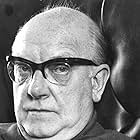Ajouter une intrigue dans votre langueAn impassive young girl is taken from her suicidal big-city life back to a city in the North of England on a bizarre bus trip. Seen through the poetic eye of the camera, this is a commentary... Tout lireAn impassive young girl is taken from her suicidal big-city life back to a city in the North of England on a bizarre bus trip. Seen through the poetic eye of the camera, this is a commentary of doomed British morbidity.An impassive young girl is taken from her suicidal big-city life back to a city in the North of England on a bizarre bus trip. Seen through the poetic eye of the camera, this is a commentary of doomed British morbidity.



























